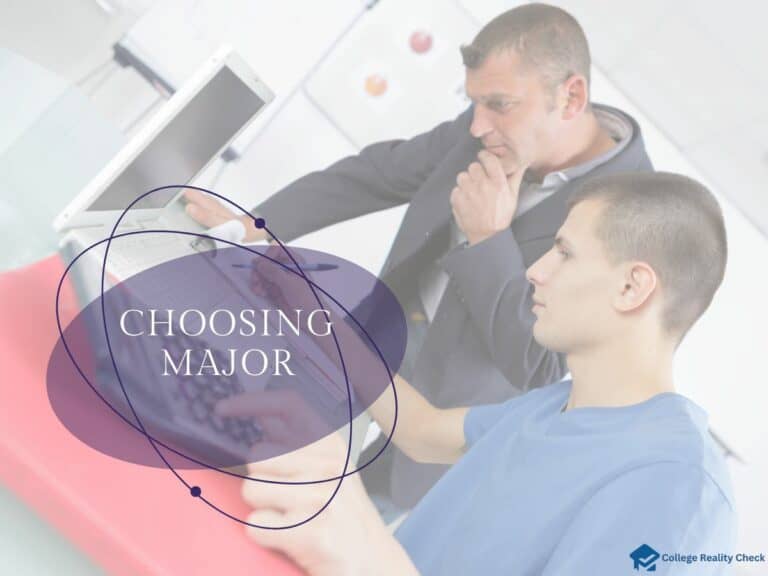Earn Big and Make a Difference with a Healthcare Administration Degree
Different professionals in a healthcare setting have different roles.
For instance, physicians, nurses, and physical therapists provide direct patient care.
Meanwhile, some deal with planning, overseeing, and coordinating various healthcare services to ensure quality patient care, efficient operations, and proper management of resources.
You can enroll in a health administration program to prepare for such a career.
It’s also known as healthcare management or hospital management.
A bachelor’s degree is usually equivalent to 160 to 180 credits and takes around four years to complete — you can complete it in the customary manner as a traditional student or online as an adult learner.
Compared to medical programs, a healthcare admin program isn’t as hard.
But be warned: it combines healthcare and business, which is why undergraduate students interested in the business side of healthcare provision are more likely to succeed in the program.
Working hard to earn your degree in your health administration pays off big time.
It opens doors for various career opportunities, most of which have a whopping 28% projected job growth within the decade (the average for all occupations in the United States is only 3%.
$104,830 per year.
On average, that’s how much healthcare administrators in the country make per year, according to the US Bureau of Labor Statistics (BLS) — that’s 126% higher than the average salary for all occupations ($46,310)!

A Hard Program for Uninterested Students
Many students who want no challenge in college steer clear of a couple of program groups.
STEM and healthcare.
Before you enroll in a healthcare admin program, ensure you are 100% interested in working on it and planning on having a leadership role in various healthcare settings, from hospitals to government agencies.
It may also be perfect for those who wish to work in related areas, such as the insurance sector.
For Whom the Program is Suited?
A health administration program is for degree-seeking students who are genuinely interested someday in improving patient care and their health outcomes.
It’s great for those intending to be in the healthcare industry without administering direct patient care.
Instead, a healthcare admin degree is worthwhile for students who take on supervisory or management roles in a setting where there’s provision of care, ensuring that everyday operations run smoothly.
Check if you find the following roles rewarding:
- Establishing goals and objectives for better healthcare service quality and efficiency
- Checking compliance with state laws and regulations of the healthcare facility
- Initiating budgets and manage finances such as patient fees and billing
- Training and supervising staff members and create their work schedules
- Maintaining and organizing records and documents
- Representing the healthcare facility during meetings
Do you see yourself doing those in the future?
Then a degree in healthcare administration may be right for you.
However, it’s also important to consider your other options with your academic and career goals together with your personal interests and life passions in mind.
Just the Right Difficulty for a Demanding Career
A degree in health administration prepares you for one of the most challenging and constantly changing industries in the country and worldwide: the healthcare scene.
Therefore, it’s just right that it comes with rigorous coursework.
Because the role that it will set you up for does not involve direct patient care, majoring in healthcare admin is not as challenging as attending higher education to be a doctor or nurse.
It has its unique demands since it incorporates business components, though.
Financial accounting, healthcare finance, project management, and strategic planning for healthcare are some courses that serve as proof that the degree entails the business side of healthcare delivery.
Here are the skills you will need for the program’s business aspect:
- Project and policy management
- Strategic operations planning and finance
- Operations planning and management
- Human resources
And now, the following are the skills vital for its healthcare aspect:
- Healthcare service administration
- Quality assurance
- Risk management
- Ethics

Best Colleges for Healthcare Administration
It’s not which college you go to but what you do there.
However, enrolling in a quality healthcare admin program is still a must to equip yourself with a strong foundational knowledge and valuable skill set, which you will appreciate when it’s time to get a job.
It also allows you access to a comprehensive curriculum taught by qualified professors.
Research opportunities the institution provides can greatly enhance the learning experience and improve one’s chances of getting a top-level job or admission to graduate school.
US News says that these 20 institutions with the best health administration degree programs:
| Institution | Location |
|---|---|
| University of Alabama at Birmingham | Birmingham, AL |
| University of Minnesota – Twin Cities | Minneapolis, MN |
| Rush University | Chicago, IL |
| University of Michigan – Ann Arbor | Ann Arbor, MI |
| University of North Carolina – Chapel Hill | Chapel Hill, NC |
| Virginia Commonwealth University | Richmond, VA |
| Johns Hopkins University | Baltimore, MD |
| Cornell University | Ithaca, NY |
| George Washington University | Washington, DC |
| Ohio State University | Columbus, OH |
| Columbia University | New York, NY |
| University of Iowa | Iowa City, IA |
| University of Pittsburgh | Pittsburgh, PA |
| Tulane University | New Orleans, LA |
| University of Southern California | Los Angeles, CA |
| University of Washington | Seattle, WA |
| Baylor University | Waco, TX |
| Boston University | Boston, MA |
| Medical University of South Carolina | Charleston, SC |
| Pennsylvania State University | University Park, PA |
What You Can Do With a Healthcare Admin Degree
Various facilities and organizations provide healthcare services.
The healthcare industry is also constantly evolving, with policies coming and going and newer services replacing old ones as innovations and breakthroughs in medicine come.
As such, a healthcare administration degree unlocks various career opportunities.
Many of them are high-paying.
The job security a degree in healthcare administration provides can be reassuring, too, since people will always seek healthcare, and the industry will keep providing what they need.
Where Healthcare Admin Degree Holders Work
Individuals with a degree in healthcare administration work in various areas in the healthcare industry.
Around 30% of them have jobs in different types of hospitals, including state, local, and private ones. Hospitals in the country are the biggest employers of health administration graduates.
On the other hand, about 12% of them work in physicians’ offices.
Approximately 9% work at nursing and residential care facilities in the country, while government agencies and outpatient care centers employ about 7% each.
The following states employ the most healthcare administrator professionals:
| State | Employed Health Admin Graduates |
|---|---|
| California | 52,350 |
| Texas | 46,460 |
| Florida | 32,730 |
| New York | 25,430 |
| Massachusetts | 20,300 |

Highest-Paying Careers Available
As stated, the average annual salary of healthcare administration graduates in the US is $104,830.
The highest 10% earners in the country make an average of more than $209,990 per year, while the lowest 10% earners make an average of $64,100 per year.
Most healthcare admin professionals work full time, with some working over 40 hours a week — working long hours and during weekends and holidays is common to ensure smooth facility operation, such as during emergencies.
The following are some of the top-paying healthcare administration jobs:
| Job Title | Average Annual Salary |
|---|---|
| Chief Nursing Officer | $154,881 |
| Healthcare Marketing Manager | $137,191 |
| Pharmaceutical Sales Representative | $124,260 |
| Public Affairs Specialist | $123,490 |
| Nursing Home Administrator | $120,669 |
| Clinical Informaticist | $110,759 |
| Hospital Administrator | $105,178 |
| Healthcare Quality Improvement Manager | $101,619 |
| Health Care Practice Manager | $95,721 |
| Consulting Healthcare Administrator | $80,867 |
Meanwhile, here are the highest-paying states for healthcare administration majors:
| State | Average Annual Salary |
|---|---|
| New York | $171,620 |
| District of Columbia | $156,870 |
| New Jersey | $153,300 |
| Massachusetts | $152,450 |
| Delaware | $150,840 |
Read Next: Is History a Good Major?
Disclaimer: The views and opinions expressed in this article are those of the authors and do not necessarily represent those of the College Reality Check.





